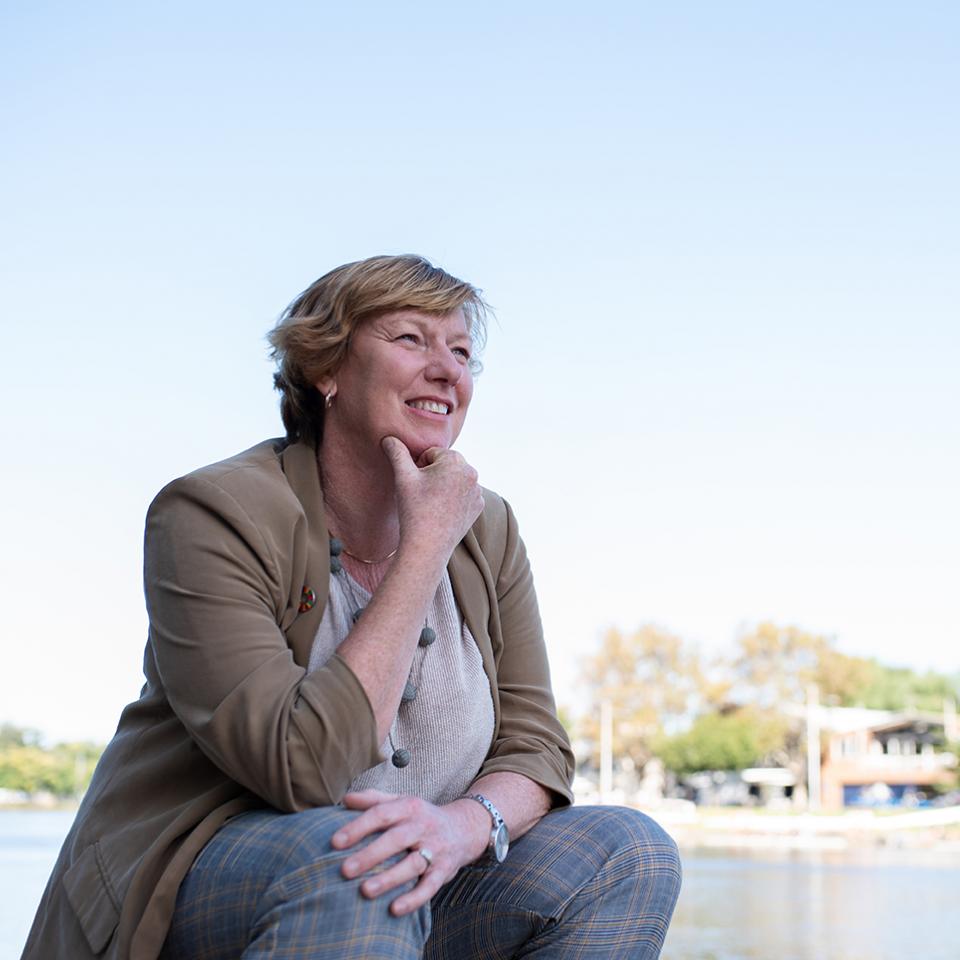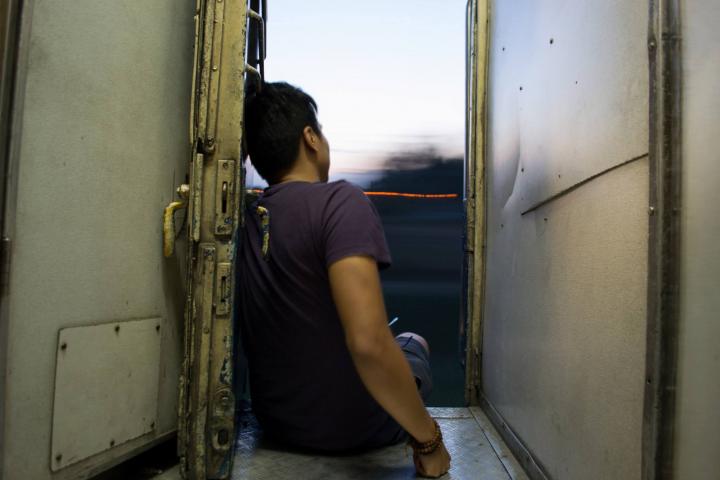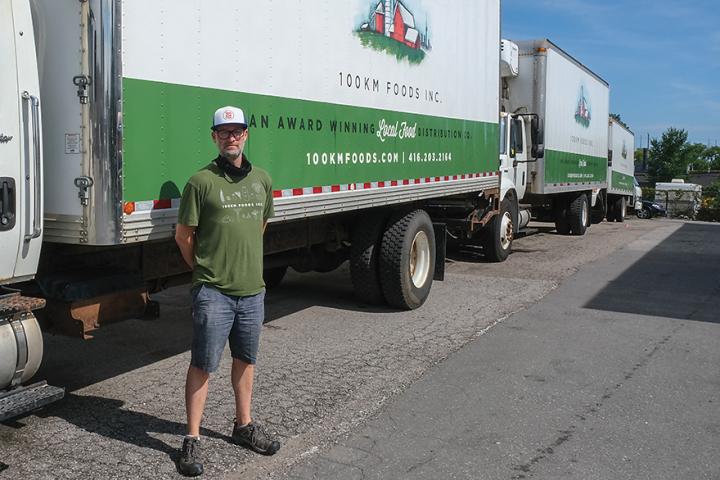For many people, getting a glass of water is as easy as walking to the kitchen and turning on the tap. Alumna Dr. Alison Baker, Sc’87, wishes this were true for everybody in the world.
“It is hard to believe in this modern age that some people still have trouble accessing water or don’t have sanitation facilities,” says Dr. Baker, noting some people walk several hours a day to get clean drinking water.
As the fund manager for a major aid program called the Water for Women Fund, Dr. Baker is trying to change that.
Water for Women is a flagship aid program funded by the Australian government to improve health, gender equality, and well-being in surrounding Asian and Pacific countries via socially inclusive and sustainable water, sanitation, and hygiene projects.
Through Water for Women, Dr. Baker has played a leading role in supporting 20 projects in 15 countries (including India, Papua New Guinea, and Cambodia) run by international non-government organizations (NGOs), and another 13 projects delivered by research institutions. Her work contributes to helping more than three million people gain better access to drinking water and improved sanitation, and to changing hygiene behaviours.
Dr. Baker, who graduated from Queen’s with a degree in chemical engineering, notes that women in many of the countries where she works have a lot of knowledge about water issues but, because of their gender-based traditional roles, they are usually tasked with getting water for their households. In many countries, woman remain excluded from decision-making processes about water, sanitation, and hygiene.
In February, Dr. Baker addressed the United Nations’ virtual International Day of Women & Girls in Science Assembly. She discussed how women and girls can be change agents who are vital to the progress of the UN’s Sustainable Development Goal No. 6: access to clean water and sanitation.
“People always laugh at me, but I always put everything into a process diagram. My chemical engineering degree taught me how to break down a problem.”
What message did you want to convey when you spoke at the UN’s International Day of Women & Girls in Science Assembly? There were a couple of key messages I wanted to get across. Water for Women has NGOs and research partners working with governments, local organizations, and communities and the message is you really need all those different voices and perspectives to find solutions to these global problems we are facing. Because the UN event was about women and girls in science, I also talked about the important role women play and how they experience things differently. It doesn’t mean (the women’s perspective) is the only view, but it is important their view is in the mix when making decisions. Men and women need to tackle global water and sanitation issues together.
The UN assembly discussion focused on the UN’s Sustainable Development Goal No. 6 (access to clean water and sanitation). What are you currently doing with Water for Women to help ensure all people have access to clean water? The Sustainable Development Goals have really brought an emphasis to what we refer to as “leave no one behind.” All our projects are doing a range of different things. Some people are working directly with communities and looking to see what their needs are with respect to water and sanitation. But, even more importantly, project teams are working with different levels of government, the private sector, and communities to build and support the systems so the people in those countries can deliver it themselves.
Tell us about your career path. How do you go from a chemical engineering student in Kingston to being the fund manager of the Water for Women Fund in Australia? After Queen’s, I took a job with a chemical company on their sales team. I did that for a little while and found it wasn’t very fulfilling. At the same time, I was starting to develop an interest in the environment. So, I made the decision to do some further study at McMaster University to get my master’s and PhD degrees in wastewater treatment. As I worked on my academic and then professional career, I was also training as a competitive race walker. I competed internationally (including the Commonwealth Games in Auckland in 1990 and Victoria, B.C., in 1994, and World Athletic Championships in 1987 and 1993). Attending Queen’s meant I could compete at two World University Games. I met my husband, who is from Australia, through race walking. I moved there after finishing my PhD and since that time have worked for GHD, an engineering and project management consulting company.
Water for Women focuses on gender equality and social inclusion to come up with solutions to problems related to water, sanitation, and hygiene. Why it is so important to include women in the decision-making process? In many global cultures, women have traditional roles. They get water if it is not located on site and oversee its use in the household. It is seen as their responsibility. It’s important to use their knowledge because they are the ones who have a deep understanding of water-related issues and the changing climate, as they experience it every day. But it is also important we change these social and cultural approaches (or “norms”) and create broader opportunities for women and marginalized groups to contribute to decisions that impact their lives. It’s about everyone working together.
How does your chemical engineering education from Queen’s apply to your career, and is there anything you learned as a student that you use in your current everyday work life? People always laugh at me, but I always put everything into a process diagram. My chemical engineering degree taught me how to break down a problem.
In terms of the technical skills, my degree enables me to talk to engineers and understand the technical details when they explain a problem to me.
And I think the other important thing Queen’s taught me is how to work in groups, work with a diverse set of people, and how to bring out the different skills and perspectives that each group member has.


